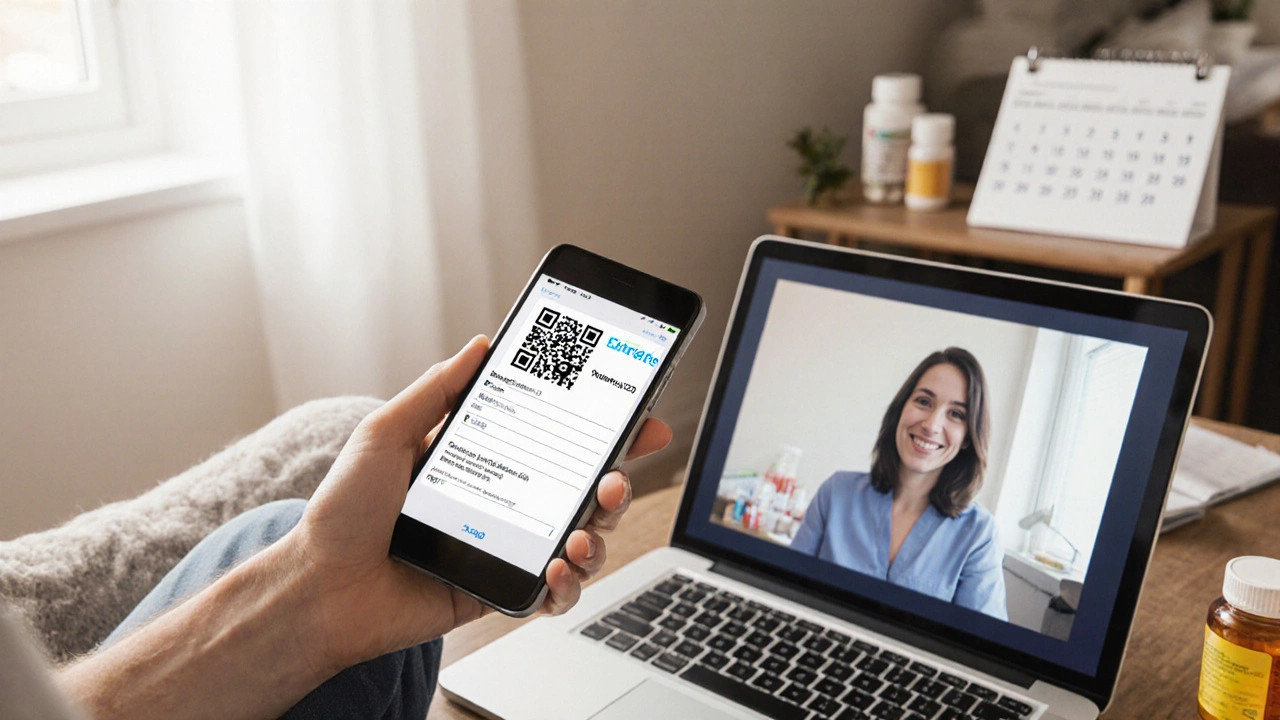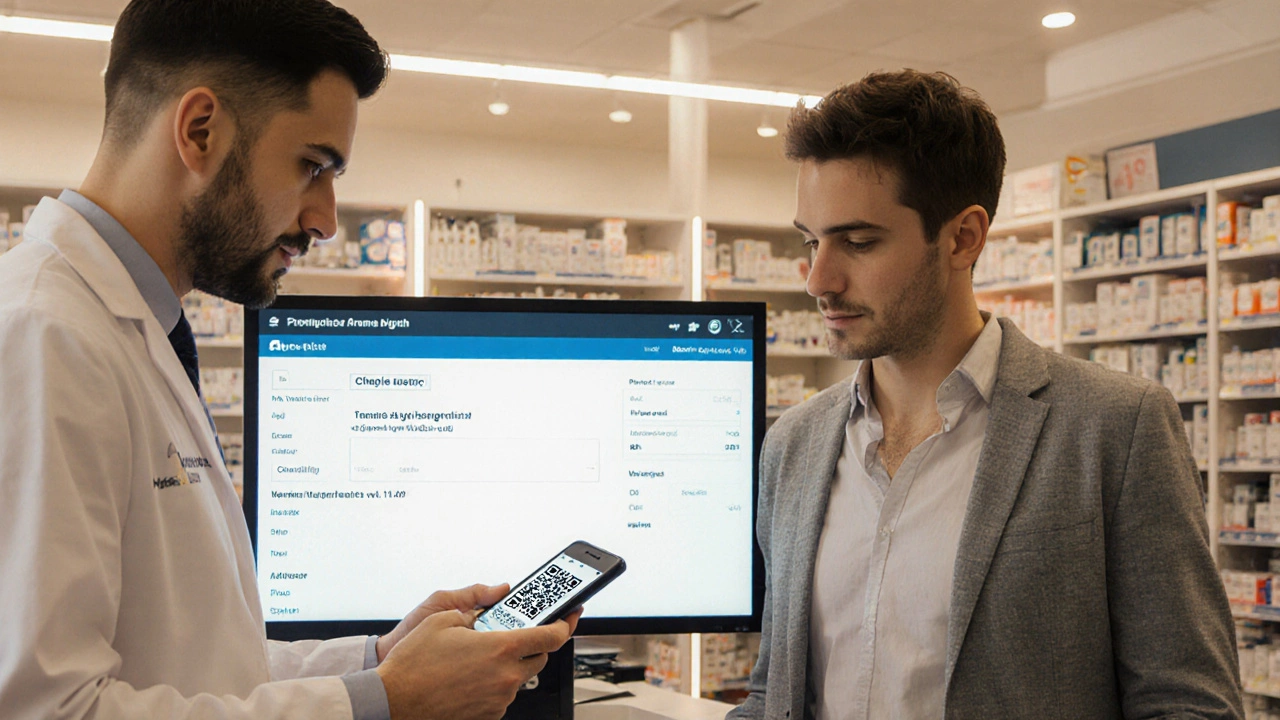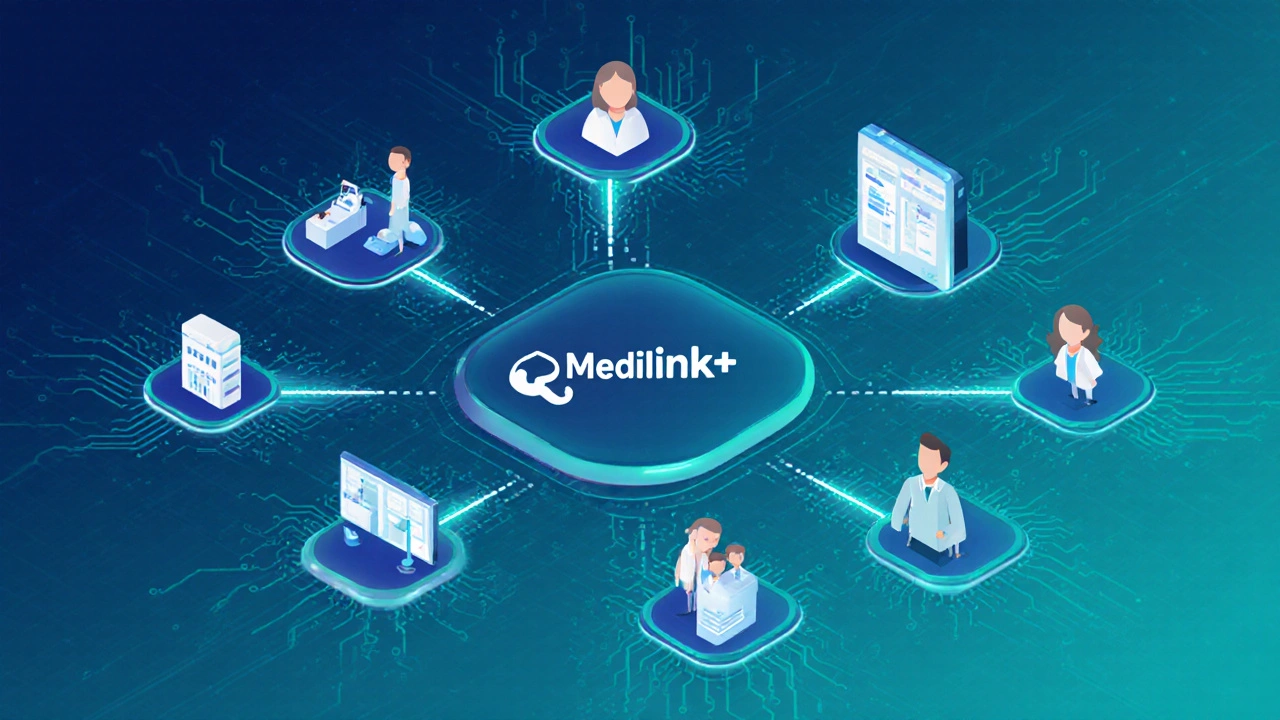 Nov, 15 2025
Nov, 15 2025
Online Prescription Validity Checker
Check if your online prescription meets legal requirements for pharmacy acceptance in New Zealand. Based on the Medicines Act 1981 and Ministry of Health guidelines.
When you get a prescription from an online doctor, is it really the same as one from your GP? Many people worry - is it legal? Will the pharmacy accept it? Can it be filled overseas? These aren’t just random questions. They’re real concerns for thousands who rely on telehealth for ongoing meds, mental health support, or chronic condition management. The short answer? Yes, an online prescription is valid - but only if it follows the rules.
What Makes a Prescription Legally Valid?
A prescription isn’t just a piece of paper or a digital file. It’s a legal document that gives a pharmacist permission to dispense controlled or restricted medication. For it to be valid, three things must be true:
- The prescribing clinician must be licensed to practice in your country or region.
- The prescription must include your full name, date of birth, and the exact medication details (name, dose, quantity, instructions).
- The prescription must be signed electronically or physically by the prescriber - no copy-pasted templates or AI-generated notes.
In New Zealand, the Medicines Act 1981 and regulations from the Ministry of Health make it clear: a prescription issued via telehealth is legally binding if it meets these standards. The same applies in Australia, the UK, Canada, and most of the EU. You don’t need to see a doctor in person for a prescription to be valid - just for it to be done properly.
How Online Prescriptions Work in Practice
Here’s how it usually goes:
- You book a video call with a registered doctor through a licensed telehealth platform.
- You discuss your symptoms, medical history, and current meds - just like an in-person visit.
- The doctor reviews your case, makes a diagnosis, and decides if a prescription is needed.
- If yes, they issue an electronic prescription (e-script) directly to your chosen pharmacy or to you via a secure link.
- You receive a notification, download the prescription, and take it to any pharmacy - or have it delivered.
Most platforms use encrypted systems that meet healthcare data standards like HIPAA (in the US) or NZ’s Health Information Privacy Code. The prescription includes a unique digital signature and a QR code that pharmacists can scan to verify authenticity. No fake scripts. No forged signatures. No guesswork.
Why Some Pharmacies Hesitate - And How to Fix It
Even though online prescriptions are legal, some pharmacists still hesitate. Why? Because they’ve been burned before.
Back in 2020, during the pandemic, there was a spike in fraudulent online clinics. Some sites sold pills without prescriptions. Others sent fake scripts that looked real but had no verification. That left pharmacies wary. Even today, a pharmacist might ask: “Is this from a real doctor?”
Here’s how to avoid delays:
- Use only platforms registered with your country’s health authority. In New Zealand, check the Ministry of Health’s list of approved telehealth providers.
- Make sure the prescription includes the doctor’s full name, registration number, and contact details.
- Call the pharmacy ahead of time. Say: “I have an e-prescription from [Clinic Name]. Can you confirm they’re approved?”
Most community pharmacies in Auckland, Wellington, and Christchurch now accept e-prescriptions without issue - especially if they’re sent directly from a verified system like HealthShare or Meditech.

Controlled Drugs and Online Prescriptions
Not all meds can be prescribed online. In New Zealand, and most countries, controlled substances - like opioids, benzodiazepines, ADHD stimulants, and some sleep aids - have extra rules.
For these:
- You usually need an in-person consultation at least once every 6 months.
- Online refills are often limited to 30 days at a time.
- Some drugs can’t be prescribed online at all - even if you’ve taken them for years.
For example, if you’re on oxycodone for chronic pain, your doctor can’t just renew your script over Zoom every month. They need to assess your condition physically - check for signs of misuse, review blood work, or adjust dosage based on how you’re responding.
This isn’t about being difficult. It’s about safety. The same rules apply whether you’re seeing a doctor in person or online. The medium doesn’t change the law - it just changes how you deliver care.
Can You Use an Online Prescription Overseas?
If you’re traveling or living abroad, can you use a New Zealand-issued e-prescription?
It depends.
Some countries - like Australia and the UK - have mutual recognition agreements for certain prescriptions. But most don’t. If you’re in Thailand, the Philippines, or the US, a NZ prescription won’t be accepted unless it’s translated, re-issued locally, and meets their rules.
Here’s what to do:
- Carry a copy of your prescription and the doctor’s contact info.
- Bring your medication in original packaging with the pharmacy label.
- Check the destination country’s drug import rules before you go. Some ban common meds like codeine or Adderall.
Don’t assume your script works globally. Always research ahead. A 2024 WHO report found that over 30% of travelers who tried filling foreign prescriptions ran into legal or safety issues.
What Happens If a Prescription Is Rejected?
Pharmacists have the right - and the duty - to refuse a prescription if they have doubts.
If your e-script gets turned down:
- Ask why. Was it missing a signature? Was the doctor not registered? Was the drug restricted?
- Contact your telehealth provider. They can reissue it with corrections or send a verification letter to the pharmacy.
- If it’s a repeat issue, switch providers. Not all telehealth services are created equal.
Never pressure a pharmacist. They’re not being rude - they’re following the law. And if they’re unsure, they’ll often call the prescriber directly to confirm. That’s a good sign. It means they care about your safety.

Red Flags: When an Online Prescription Isn’t Valid
Not every online service is legit. Here’s how to spot a fake:
- No video call - Just a form you fill out and get a script in minutes? That’s a red flag.
- No doctor credentials - Can’t find the prescriber’s name, registration number, or license on the website?
- Prescribes without diagnosis - “Just tell me what you need, we’ll send it.” That’s not medicine. That’s a scam.
- Payment before consultation - Legit providers charge after the appointment.
- Uses unregulated apps - Avoid apps that aren’t listed on official health authority websites.
There are thousands of legitimate telehealth services. Don’t risk your health for a cheap, fast fix.
What’s Changing in 2025?
Telehealth rules are evolving fast. In 2025, New Zealand is rolling out a national e-prescription system that links all registered doctors, pharmacies, and patients through a secure, central database. This means:
- Pharmacists can instantly verify any e-script - no more calling clinics.
- Doctors can see your full prescription history across providers.
- Drug interactions and duplicate prescriptions will be flagged automatically.
This system, called MediLink+, is already being tested in Auckland and Wellington. By the end of 2025, it’ll be nationwide. That means even more confidence in online prescriptions - not less.
Final Thought: It’s Not About Where You See the Doctor - It’s About How They Practice
Whether you’re in a clinic, a hospital, or on Zoom, the quality of care depends on the doctor - not the location. An online prescription isn’t second-class. It’s just a different way to deliver the same standard of care.
As long as the doctor is licensed, the process is secure, and the prescription follows the law, your script is just as valid as one written on paper. And in a world where time is tight and access is uneven, that’s not just convenient - it’s essential.
Are online prescriptions legal in New Zealand?
Yes, online prescriptions are fully legal in New Zealand as long as they’re issued by a registered medical practitioner through a licensed telehealth platform. They must include your full details, the medication specifics, and a valid electronic signature. The Ministry of Health recognizes e-prescriptions as equivalent to paper ones under the Medicines Act 1981.
Can I get a prescription for controlled drugs like Adderall or oxycodone online?
You can get a refill for some controlled drugs online, but only under strict limits. For opioids, benzodiazepines, or stimulants, New Zealand law requires an in-person consultation at least every six months. Online providers can’t issue new prescriptions for these without a physical assessment. This is to prevent misuse and ensure ongoing safety monitoring.
Will my pharmacy accept an e-prescription from an overseas doctor?
Generally, no. New Zealand pharmacies only accept prescriptions from doctors registered to practice in New Zealand or countries with mutual recognition agreements (like Australia). Even if you have a valid US or UK script, it won’t be filled here unless it’s re-issued by a local prescriber. Always check with your pharmacy before traveling.
How do I know if an online doctor service is legitimate?
Check if the provider is listed on the New Zealand Ministry of Health’s approved telehealth directory. Look for the doctor’s full name, registration number, and contact details on their website. Legit services require a video consultation - not just a form. Avoid any service that offers instant prescriptions without a proper assessment.
What if my e-prescription gets rejected at the pharmacy?
Don’t argue - ask why. Common reasons include missing doctor details, unverified prescriber status, or restricted medication. Contact your telehealth provider immediately. They can reissue the script, send a verification letter, or update the system. If this happens often, switch to a different provider. Reputable services rarely have this issue.
